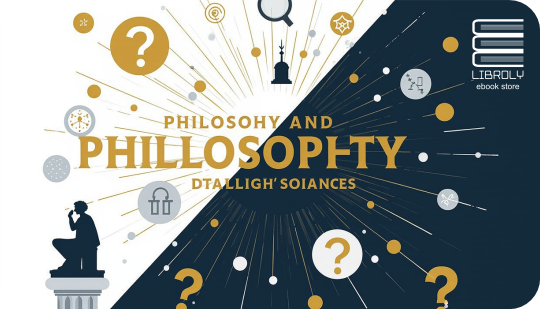Philosophy and science have always shaped and challenged each other, and their ongoing dialogue is essential for guiding technology, ethics, and humanity’s future.
- Arts Design
- Engineering and Technology
- Agriculture and Natural Resources
- Arts and Humanities
- Biological Sciences
- Business, Management, and Economics
- Civil Engineering
- Earth Sciences
- Health Sciences
- Humanities and Social Sciences
- Management Sciences
- Environmental Sciences and Natural Resources
-
Medicine
- Anesthesia
- Internal Medicine
- Plastic Surgery and Otorhinolaryngology (ENT)
- Public Health
- Sports Medicine and Rehabilitation
- Basic Medical Sciences
- Behavioral Sciences and Psychology
- Blood and Cancer
- Cardiology and Cardiac Surgery
- Dentistry
- Dermatology
- Emergency
- Gynecology and Obstetrics
- Neurology
- Nursing
- Nutrition
- Ophthalmology
- Orthopedic
- Pathology and Laboratory Sciences
- Pediatrics
- Pharmacy
- Radiology
- Surgery
- Urology
- Veterinary Medicine
- Natural Sciences
- Smart Technologies
- Social Sciences
philosophy and Science: An Everlasting Dialogue

Throughout the history of intellectual thought, philosophy and science have consistently developed alongside one another. While philosophy poses essential inquiries regarding existence, truth, knowledge, and ethics, science aims to deliver more precise answers through observation and experimentation. This interaction is not merely a remnant of the past; it persists today in important discussions surrounding artificial intelligence, biotechnology, environmental concerns, and data ethics. In this article, we examine how philosophy and science have shaped one another, the challenges and opportunities that arise in their relationship, and the significance of this ongoing dialogue for the future of humanity.
The Historical Roots of the Philosophy-Science Relationship
In ancient Greece, there was little separation between science and philosophy. Thinkers such as Aristotle explored logic, physics, biology, and ethics simultaneously. For them, understanding "what the world is" involved both philosophical and scientific aspects.
During the modern period, with the advent of the empirical method introduced by Francis Bacon and the developments made by Galileo and Newton, science gradually embarked on a more autonomous path. Nevertheless, philosophical inquiries concerning the essence of natural laws, the boundaries of knowledge, and the influence of the observer on data continued to persist.
Philosophy: Questioning the Foundations of Science
One of the most important roles of philosophy in relation to science is to question its underlying assumptions. For example:
- The philosophy of science asks: Are scientific laws absolute truths or merely approximate models for understanding the world?
- Epistemology investigates how we move from data to theory and whether we can place absolute trust in scientific results.
- Philosophical ethics warns about how scientific findings should be applied in society (e.g., in genetic engineering or artificial intelligence).
Without this questioning, science might simply become a technical tool lacking a human and ethical compass.
Science: Testing Philosophical Ideas
On the other hand, science has repeatedly challenged or enriched philosophical theories. For instance:
- Einstein's Theory of Relativity changed our philosophical view of time and space.
- Quantum mechanics raised new questions about causality, probability, and the observer's role in existence.
- Neuroscience has reshaped philosophical perspectives on the mind and consciousness.
In this way, science acts as an empirical tool, putting philosophical ideas to the test and sometimes refuting or refining them.
The Contemporary Dialogue Between Philosophy and Science
In the 21st century, this dialogue continues in new forms. Here are a few important examples:
- Artificial Intelligence and Data Ethics: Philosophy asks: Can a machine be conscious? Where is the line between a human and AI? In practice, science and technology are building systems that make decisions, leading to heated philosophical and legal debates.
- Biotechnology and Gene Editing: Bioethics must clarify "what we are allowed to change" while biology and medicine provide the tools to edit the genome.
- Environmental Issues and Intergenerational Responsibility: Science provides precise data on climate change, but philosophy must tell us what responsibility we have toward future generations.
- Cosmology and Ultimate Questions: Science investigates the Big Bang, black holes, and the possibility of extraterrestrial life, while philosophy asks: What is the meaning of humanity's place in this cosmos?
Points of Synergy Between Philosophy and Science
- Methodology Development: Philosophy, through its critique and analysis of the scientific method, makes it more rigorous.
- Enriching Meaning: Science provides the data, and philosophy provides a framework for understanding their meaning and implications.
- Focus on Ethics: Science creates the tools; philosophy shows us how they should be used.
- Mutual Inspiration: Many scientific theories were born from philosophical questions, and vice versa.
Remaining Challenges
Naturally, this relationship can be challenging at times. Occasionally, scientists consider philosophy to be "valueless," while philosophers regard science as simply "functional." Another risk is that one discipline could overshadow the other. The remedy lies in a balanced and active conversation where both disciplines fulfill their vital functions.
Why This Dialogue Is Essential for Humanity's Future
- Sustainable Progress: Only the combination of science and philosophy can ensure that technological advancements align with human values.
- Crisis Management: Crises like climate change or dangerous technologies cannot be solved without ethical and philosophical frameworks.
- Understanding Our Place: Science provides information, but philosophy helps us understand its meaning and redefine our role in the world.
- Intellectual Innovation: The clash of philosophical ideas with scientific data is a catalyst for new creativity.
Conclusion
The interaction between philosophy and science is a historical continuity that never ceases. Philosophy, by posing deep questions, prevents science from devolving into mere technical application, while science, through its stringent methods of validation, ensures that philosophy does not become ensnared in unfounded abstractions. In our current age, where emerging technologies are reshaping human existence, this ongoing dialogue is more important than ever. The direction of humanity’s future will be influenced not by a division between philosophy and science, but rather by their collaboration.
Share this post:







0 Comments